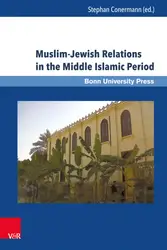The only Arabic voice to have witnessed the Ottoman conquest of Cairo, Ibn Iyās, is an eminent historical source for the late Mamluk period. This book is the first to take stock of the author's complete works, approaching him through an examination of his narrative voice and writing strategies. Tracing Ibn Iyās's working process by compilation analysis, it shows how the author adapted his representations of Egyptian history to his writing projects and audience. Ibn Iyās's ways of worldmaking are shaped deeply by beliefs, biases and intellectual trends as well as the impact of the social and historical context the author wrote in. Knowing these conditioning factors allows to understand his presentation of history as an individual voice of his time.

State formation and the structure of politics in Mamluk Syro-Egypt, 648–741 A.H./1250–1340 C.E.
Winslow Williams Clifford
book
Everything is on the Move : The Mamluk Empire as a Node in (Trans-)Regional Networks
book
The Rise and Fall of a Muslim Regiment : The Manṣūriyya in the First Mamluk Sultanate, 678/1279–741/1341
Amir Mazor
book
History and Society during the Mamluk Period (1250–1517) : Studies of the Annemarie Schimmel Institute for Advanced Study II
book
Mamluk Historiography Revisited – Narratological Perspectives
book
Muslim-Jewish Relations in the Middle Islamic Period : Jews in the Ayyubid and Mamluk Sultanates (1171–1517)
book
The Mamluk Sultanate from the Perspective of Regional and World History : Economic, Social and Cultural Development in an Era of Increasing International Interaction and Competition
book
Islamic Philosophy from the 12th to the 14th Century
book
Domestic Slavery in Syria and Egypt, 1200–1500
Jan Hinrich Hagedorn
book
Living with Nature and Things : Contributions to a New Social History of the Middle Islamic Periods
book
History and Society during the Mamluk Period (1250–1517) : Studies of the Annemarie Schimmel Institute for Advanced Study III
book
Studies on the History and Culture of the Mamluk Sultanate (1250–1517)
book
